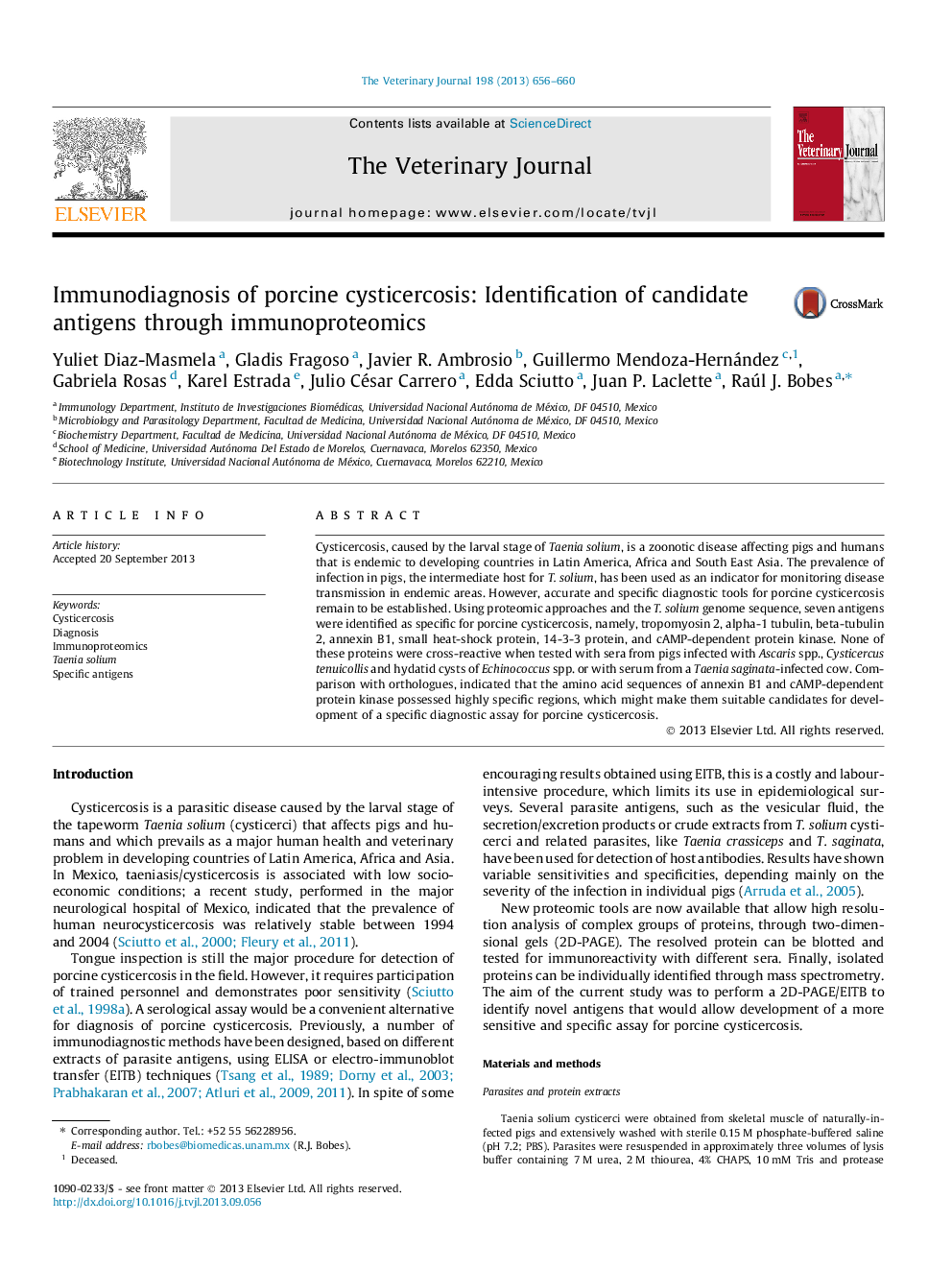| Article ID | Journal | Published Year | Pages | File Type |
|---|---|---|---|---|
| 5799031 | The Veterinary Journal | 2013 | 5 Pages |
Cysticercosis, caused by the larval stage of Taenia solium, is a zoonotic disease affecting pigs and humans that is endemic to developing countries in Latin America, Africa and South East Asia. The prevalence of infection in pigs, the intermediate host for T. solium, has been used as an indicator for monitoring disease transmission in endemic areas. However, accurate and specific diagnostic tools for porcine cysticercosis remain to be established. Using proteomic approaches and the T. solium genome sequence, seven antigens were identified as specific for porcine cysticercosis, namely, tropomyosin 2, alpha-1 tubulin, beta-tubulin 2, annexin B1, small heat-shock protein, 14-3-3 protein, and cAMP-dependent protein kinase. None of these proteins were cross-reactive when tested with sera from pigs infected with Ascaris spp., Cysticercus tenuicollis and hydatid cysts of Echinococcus spp. or with serum from a Taenia saginata-infected cow. Comparison with orthologues, indicated that the amino acid sequences of annexin B1 and cAMP-dependent protein kinase possessed highly specific regions, which might make them suitable candidates for development of a specific diagnostic assay for porcine cysticercosis.
